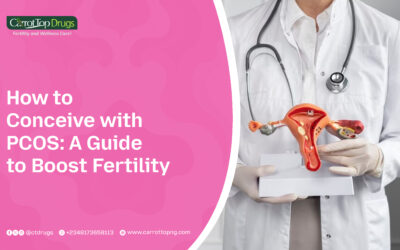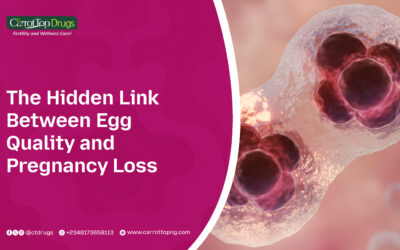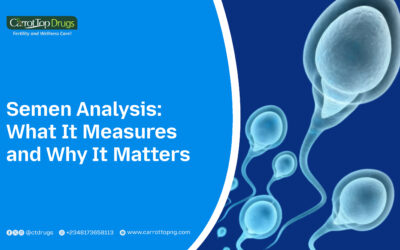FAQ ON INFERTILITY – ANSWERS FOR EASY CONCEPTION
While a lot of people are trying to get pregnant, they are inundated with the need to find answers to every seemingly wrong or negative thing that might be happening with their reproductive organs.
Below are 10 Faq on infertility and the answers that will help you on your conception journey.
10 FAQ ON INFERTILITY
1. How do I calculate my ovulation day?
In simple terms, ovulation is the release of a mature egg from a woman’s ovary. Every month, a woman releases an egg from her ovaries and when the egg is released,
It travels down through the Fallopian tube and can either become a fetus when it comes in contact with sperm or it can be expelled from the body as menstruation.
Ovulation lasts for only one day but the ovulation period is between 24-36 hours, during this period, having sexual intercourse with your spouse on those days can increase your chances of getting pregnant.
We wrote an extensive article on ovulation, click here to read about it.

2. I’m having irregular menstruation, how do I correct it and get pregnant?
A normal menstrual cycle lasts 28 days, plus or minus seven days. Your menstruation is considered irregular if it occurs more frequently than every 21 days or lasts longer than 8 days. Missed, early, or late periods are also considered signs of an irregular cycle.
To determine whether your menstruation schedule is irregular, count from the last day of your previous period and stop counting on the first day of your next. Repeat this for three months. “If the number of days between stopping and starting your period is significantly different each month, you have an irregular cycle.

Evergreen Formular for Women is the fertility booster which has been formulated to help women correct their irregular menstruation issues.
3. I have an infection and I’m trying to get pregnant, what can I do?
There are different types of infection, and the extent to which it can affect infertility is highly dependent on how long the infection has taken.
yeast infection
toilet infection
sexually transmitted infection.
3 tips
- Have a healthy relationship with your vagina
- reduce your intake of bacteria inducing foods E.g Yoghurt.
- Visit a clinic for a vaginal infection test and follow the recommendations of your Doctor.

4. I have PCOS and I want to get pregnant, what can I do?
Polycystic Ovarian Syndrome is a series of symptoms that show that a woman has an increased amount of male hormones in her body.
PCOS affects a woman’s ovaries, the reproductive organs that produce estrogen and progesterone — hormones that regulate the menstrual cycle.
The main features of PCOS includes;
- Hair growth on the face and body,
- Baldness
- Irregular menstruation
- And it can contribute to long-term health problems like diabetes and heart diseases
- Cysts in the ovaries
- High levels of male hormones
- Irregular or skipped periods
PCOS is a “syndrome,” or group of symptoms that affects the ovaries and ovulation and Evergreen Formular for Women can correct this challenge, thereby increasing your ability to get pregnant.
You can get it here>>> Evergreen Formular for Women
5. Low Sperm Count
When a man ejaculates, about 250 million sperm are released. For conception to occur, a sperm cell has to swim all the way up from the vagina, through the cervix and uterus and into your fallopian tube to reach an egg which has been ovulated. Of those millions of sperm, only hundreds will make it up to the fallopian tubes.
All of those sperm release an enzyme which helps clear the way to the egg. If all goes well, one sperm will swim up that pathway and fertilize the egg. The fertilized egg will move down the fallopian tube and travel to the uterus, where it can implant and grow.
Due to the reduction process that happens before the sperm cell can fertilize an ovulated egg, there is a need for the sperm to be in large quantity.
When a man’s sperm is measured after a semen analysis and has less than 20% active cells, a man is said to have a low sperm count.
Evergreen Formular for Men has been specially formulated to correct this challenge in men and contains vitamins that not only have anti-inflammatory properties, it also increases sperm motility and morphology.
You can get it here>>> Evergreen Formular for Men
6. Milk is coming out from my breast and I want to get pregnant, what can I do?
When a woman who is trying to conceive is experiencing abnormal lactation, it will be difficult for her to get pregnant as her body is working in an antagonistic manner.
The hormone prolactin works against Estrogen and Progesterone which increases a woman’s ability to get pregnant.
We wrote an insightful article on how to end breast discharge and get pregnant faster, you can read it by clicking here.
7. My penis itches terribly and I feel pains when I urinate, what can I do?
Penis itch depends on 2 major factors, there’s the;
Sexually Transmitted Itching which is transmitted by bacteria and virus, while there’s the non sexually transmitted due to dermatological, irritability and environmental factors.
It is advisable that once a man begins to itch frequently, he should visit a clinic to ascertain which of the causes we’ve highlighted is the culprit.
Get tested and follow the recommendation of drugs from your Doctor after which you can then start using Evergreen Formular for Men to boost your chances of getting your partner pregnant!
8. I recently experienced a miscarriage, what can I do to get pregnant faster?
Generally, most miscarriages occur most when the body identifies the fetus as either deformed or not properly developed, it thereby carries out a default abortion.
We talked about miscarriage and what you can do to get pregnant faster, read it here.
9. I have a Fibroid, what can I do to get pregnant?
Depending on the size of your Fibroid, it is possible to get pregnant using Fertility supplements if the size is small.
However, it is important to note that the best recommendations to follow are those from your Doctor, whether surgery or drugs, please follow your Doctors’.
10. Have more questions that haven’t been answered in this article?
Feel free to ask in the comment section.
Finally, these FAQ on infertility are some of the questions we’ve received so far, we’ve tried to answer the questions as we possibly can, however, this in no way counters your Doctor’s professional advise.
















